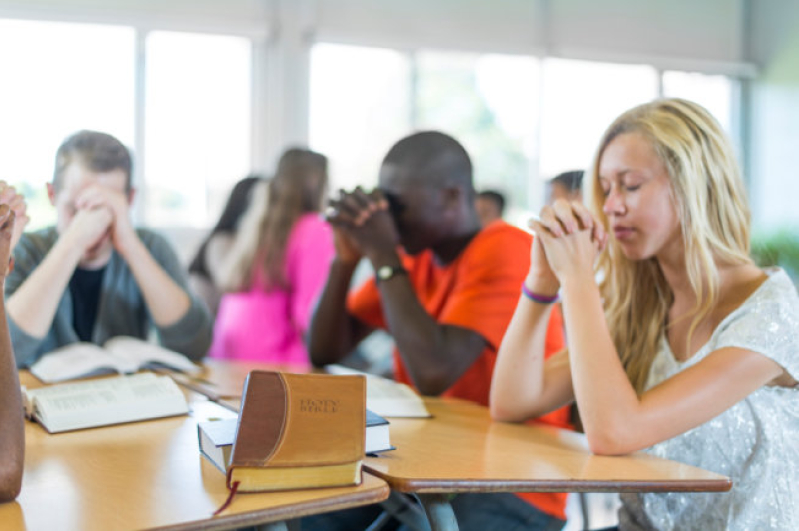
Thou shall not study thy Bible -- at least not during lunchtime.
That's the new commandment at Hudsonville Elementary School in Michigan. The school district shut down a lunchtime Bible study for fifth graders that was led by a teacher.
"The teacher (who thought the Bible discussion was appropriate because it was during lunch and voluntary) immediately put an end to these lunch meetings," Hudsonville Public Schools wrote in a statement to television station WOOD. "We will continue to communicate and educate staff at all levels on the District's policies related to religion in schools."
The controversy started after the Michigan Association of Civil Rights Activists ratted out the young Bible scholars. And they wasted no time in gloating over their victory.
"This illegal and unconstitutional activity was being conducted without parental notification or consent," the organization said in a news release. "One parent told MACRA that their child, who is only 10-years-old, was singled out and subjected to peer pressure for declining to attend the Bible studies."
The school district pretty much threw the teacher under the bus -- telling MLive.com they had no idea the group was even meeting during lunchtime.
"We'd like to see the district take a more proactive stance in communicating across the district that teachers and volunteers are not to be involved with religion during the school day," a spokesman for MACRA told MLive.com.
Apparently the biggest disciplinary issue in Hudsonville Public Schools is young people sneaking a peek at the Good Book while they're eating a bologna sandwich.
I could see where that would trigger microaggressions among non-believers -- and maybe a little indigestion.






